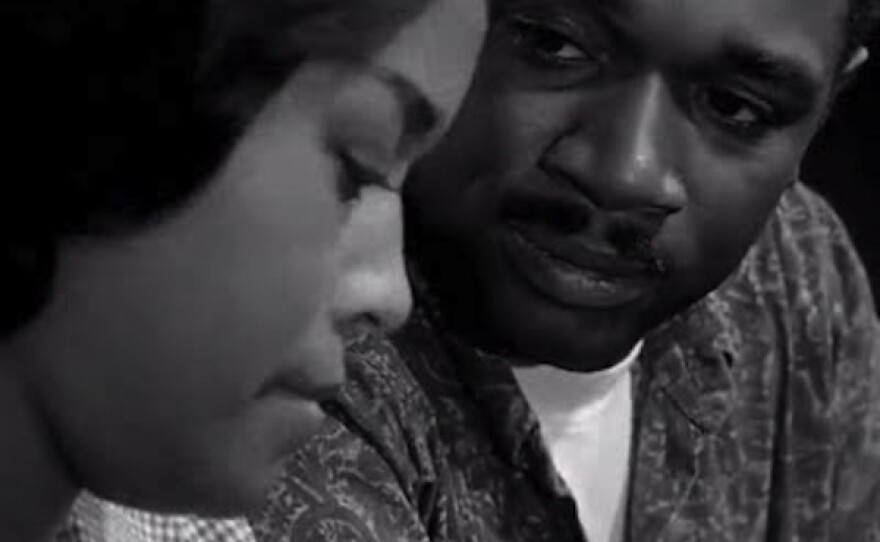Here's a list of films worth watching or revisiting on this Martin Luther King, Jr. holiday.
"The Help" may be reaping prizes and acclaim for its story of African American maids making a stand for fair treatment. But the film places a white woman at the forefront of the story and makes the African American women supporting players in their own struggle. I wanted to suggest some films that have African Americans behind the camera and as lead players in their own stories. Not all the films are overtly about civil rights but all are about presenting a black perspective different from the one Hollywood tends to serve up.
There are no -- as far as I know -- great non-documentary films about Martin Luther King, Jr. "King: The Martin Luther King Story" is the main one I can recall and it really doesn't do justice to King. It's a three-part miniseries first telecast in February 1978. The film reunites the "Sounder" acting team of Paul Winfield and Cicely Tyson to play Martin Luther King and his wife Coretta. The film spans the years 1954 through 1968, going from early peaceful protests in Montgomery to his murder in Memphis. The acting is top notch but the screenplay is seriously flawed and even inaccurate. James Earl Jones also appeared as the civil rights leader in "Freedom to Speak" (a 1982 WQED show) and Jeffrey Wright played King in the HBO movie "Boycott."
Spike Lee's "Malcolm X" covers a similar time frame and looks to a very different kind of African American civil rights leader with Denzel Washington riveting as the title character. Also worth noting are Spike Lee's "Do the Right Thing," and his documentaries "4 Little Girls" (about bombings of black churches during civil rights movement) and the TV documentaries "When the Levees Broke" and "If God is Willing and da Creek Don't Rise," about the government's response to Hurricane Katrina."
Charles Burnett's "Killer of Sheep" (1979) was denied wide release because filmmaker Charles Burnett was unable to get the necessary clearances for the numerous songs used in the film. Burnett had made the film as his thesis project while he was a grad student at UCLA’s film school. He shot the film on weekends during the course of a year, and he used mostly non-professionals as actors. He brought the project in for less than $10,000. "Killer of Sheep" is a bleak and beautiful film. There's so much to be said about the incredible details of this film yet I don't want to spoil the discovery of those moments for viewers so I'll just stop here. Contemporary audiences that are used to the slick production values of current films may be initially put off by the occasional technical crudeness of Burnett’s film and the fact that it’s in black and white. But I urge people to make an effort to see the film and to see past the low budget awkwardness to find the exquisite lyricism of Burnett’s film. It’s truly rare to find something this original, honest and insightful.

You might only recall Ivan Dixon as the token black in the TV sitcom "Hogan's Heroes" but he started his career with a lot of promise as a dramatic actor. His best film is probably "Nothing But a Man" (1964) about and man and his wife (a teacher) facing racial discrimination in 1960s America. Dixon also directed "The Spook Who Sat by the Door" (1973), an adaptation of Sam Greenlee's novel about the first black agent in the CIA and how he becomes a leader in the black revolution. Here's are a pair of lines from the film's main character Dan freeman. The provocative, " You have just played out the American dream... and now, we're gonna turn it into a nightmare." And the more compelling, "This is not about 'hate white folks.' This is about loving freedom enough to die or kill for it if need be." This film, like "Killer of Sheep" was hard to find for decades. Heavy-handed at times but also remarkably subversive.
Another flawed but interesting literary adaptation is "The Man," based on Irving Wallace's novel about the first black man to occupy the Oval office. James Earl Jones is Douglas Dilman, the first black president. Made as a TV movie and a flawed but provocative work.
"Watermelon Man" (1970) is Melvin Van Peebles' satire about a bigoted white man who wakes up to find himself black in a racist America. Godfrey Cambridge (in white face at the beginning) gives a brilliant performance that carries the film. Also check out Van Peebles' "Sweet Sweetback's Baadassss Song," a kind of heralding in of blaxploitation.
Cambridge pairs up with Raymond St. Jacques in Ossie Davis' "Cotton Comes to Harlem" about a pair of black cops. The film helped usher in a wave of blaxploitation films and is one of the best examples the crime novels of Chester Himes, and Cambridge and St. Jacques are great.
Wish I had time to list some more, especially more of the great docs. But explore a little on your own and you can't go wrong seeking out anything with Sidney Poitier, Pam Grier, Oscar Micheaux, Ossie Davis, or Morgan Freeman. Or for edgier and perhaps less socially conscious films there's always Samuel L. Jackson. The sad comment, though, is that although there are many great films by and about African Americans, Hollywood is still dominated by a white male perspective, and cliches and stereotypes can still be found. This list just points out some of the exceptions. So enjoy and cherish these films.






